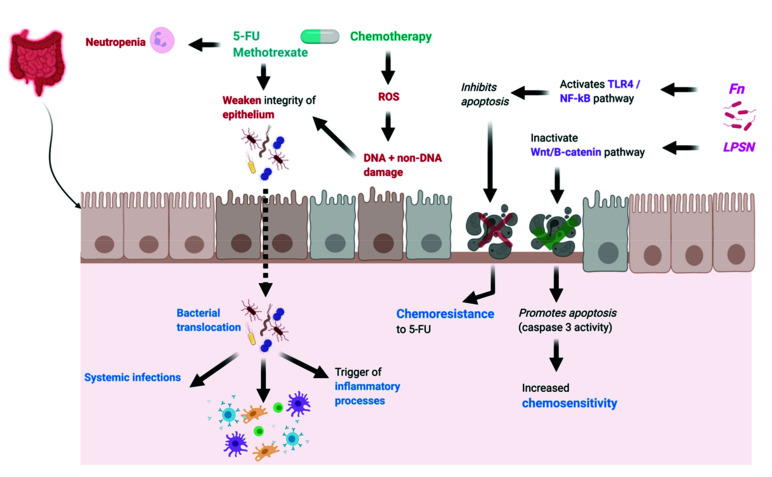Figure 1.
The effect of microbiome on chemotherapy efficacy and toxicity. The gut microbiota can affect the host response to chemotherapeutic agents by facilitating drug efficacy, promoting chemoresistance and/or mediating chemotherapeutic toxicity and side effects. On the other hand, the efficacy of anticancer therapy is dependent on microbiota-mediated innate and adaptive immune responses. As a whole, chemotherapy induces ROS-mediated DNA and non-DNA damage, resulting in bacterial translocation across the intestinal epithelium. This in turn induces an inflammatory response and can provoke systemic infections. Abbreviations: 5-FU, 5-fluorouracil; DNA, deoxyribonucleic acid; Fn, fusobacterium nucleatum; LPSN, lactobacillus plantarum supernatant; ROS, reactive oxygen species. The bolded arrows represent the effects of the microbiome and chemotherapy, and the broken arrow represents bacterial translocation.

